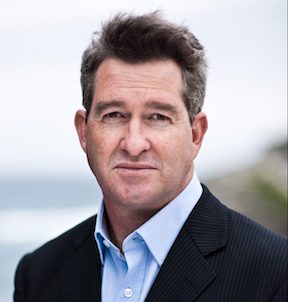Australian firms brace for carbon tariffs under net-zero push
Exporters in Australia, a top shipper of coal and natural gas, are positioning for carbon border tariffs to be introduced as soon as 2023 as the nation’s key trading partners set increasingly ambitious climate goals.
“Direct evidence from some of our members shows that companies are beginning to prepare for this,” John Connor, chief executive officer at the Carbon Market Institute, an advocacy group in favor of a faster energy transition, said in a telephone interview. Companies see a potential timeline of between three and five years for new levies to be introduced, he said.

The European Union is expected to outline next year how it will impose a tariff on emissions-intensive products brought into the bloc, a policy that’s seen as likely to eventually cover sectors including oil, metals and chemicals. With Japan, South Korea and China—among Australia’s top export destinations—all adopting long-term net-zero emissions targets, companies see the potential that those nations will also move to tax heavy polluting imports.
Australian Prime Minister Scott Morrison’s government has shied away from a net-zero goal, focusing instead on a technology-based approach to emissions reduction, while promoting a “gas-fired” economic recovery. Businesses are increasingly aware of the “spiraling costs” of climate inaction, Connor said Friday, while they also face mounting scrutiny on the issue from shareholders.
The nation’s economy could contract by 6% over the next five decades if the country doesn’t take stronger action to curb greenhouse gas emissions, according to a report earlier this month from Deloitte Access Economics.
A survey of 234 business leaders published Monday by the Carbon Market Institute found 79% of respondents view carbon border tariffs as a potential risk to Australia’s emissions-intensive industries, rising from 70% in the same survey a year ago. Most of those questioned also said Morrison’s government was not doing enough to integrate climate action into post-pandemic economic plans.
Similar Stories

Drewry Intra-Asia Container Index - 15 Jan
View ArticleUnited States and Norway issue innovative report creating greater transparency in critical mineral supply chains
Today, the U.S. Department of Commerce and the Norwegian Ministry of Trade, Industry, and Fisheries issued a thorough, innovative report presenting our shared understanding of non-market policies and practices (NMPPs)…
View Article
New helicopter operations guide launched by International Chamber of Shipping
View Article
KR grants world’s first AIP to HD KSOE for pioneering large-scale liquid hydrogen tank vacuum system
View Article
DNV launches class notations to provide framework for safe development of autonomous shipping technologies
View Article
Discover IAX1, CMA CGM’s new feedering service linking Türkiye and Bulgaria
View ArticleGet the most up-to-date trending news!
SubscribeIndustry updates and weekly newsletter direct to your inbox!





